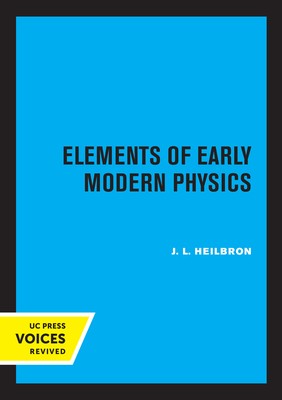
- We will send in 10–14 business days.
- Author: J L Heilbron
- Publisher: University of California Press
- ISBN-10: 0520302559
- ISBN-13: 9780520302556
- Format: 14.8 x 21 x 1.8 cm, softcover
- Language: English
- SAVE -10% with code: EXTRA
Reviews
Description
Elements of Early Modern Physics comprises the two long introductory chapters of J. L. Heilbron's monumental work Electricity in the 17th and 18th Centuries: A Study of Early Modern Physics plus a concluding summary of the remaining chapters. Heilbron opens with a presentation of the general principles of physical theory and a description of the institutional frameworks in which physics were cultivated in the seventeenth and eighteenth centuries. He argues that the single most important contributor to physics in the seventeenth century was the Catholic Church. In the first half of the eighteenth century, Cartesian and Newtonian physicists disagreed over principles but thought in similar terms and cultivated the same sort of qualitative natural philosophy. Work towards an exact physics, which took on important dimensions after 1770, confounded the programs of both. Heilbron shows that by attending too closely to the Copernican revolution and the confrontation of great philosophical systems, historians have seriously misjudged the character of early modern science. This title is part of UC Press's Voices Revived program, which commemorates University of California Press's mission to seek out and cultivate the brightest minds and give them voice, reach, and impact. Drawing on a backlist dating to 1893, Voices Revived makes high-quality, peer-reviewed scholarship accessible once again using print-on-demand technology. This title was originally published in 1982.EXTRA 10 % discount with code: EXTRA
The promotion ends in 19d.21:57:58
The discount code is valid when purchasing from 10 €. Discounts do not stack.
- Author: J L Heilbron
- Publisher: University of California Press
- ISBN-10: 0520302559
- ISBN-13: 9780520302556
- Format: 14.8 x 21 x 1.8 cm, softcover
- Language: English English


Reviews